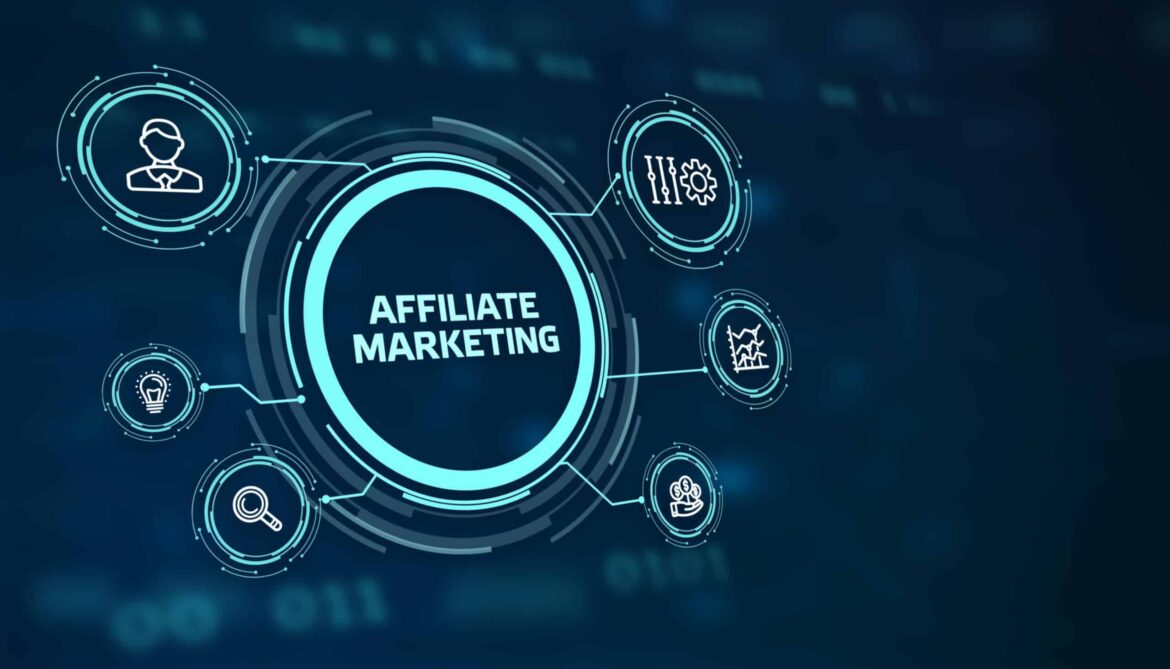457
Many people don’t know what affiliate marketing is or how to earn money with it – even though we encounter it online almost every day.
Affiliate marketing: What is it?
What affiliate marketing is and how different companies and individuals benefit from it can be explained quite quickly.
- Affiliate marketing is a type of partnership program that is often carried out online by two websites. Affiliate marketing is less common offline.
- This is a special commission system. If customers are redirected from website A to website B to make a purchase, website A receives a commission.
- This redirection usually takes place via links or advertising banners. As a rule, the commission is only paid if the customer ultimately purchases the recommended product.
- Today, it is not only traditional websites that play a role, but also apps, podcasts, and social media channels (Instagram, TikTok, YouTube). Influencers place affiliate links or discount codes directly in stories, livestreams, and posts.
- In addition to standard links, deep links, QR codes, and personalized coupon codes are used to make redirection measurable even outside the browser, for example in brick-and-mortar stores.
Comparison portals: Example of affiliate marketing
Comparison portals provide an overview of different providers.
- There are numerous websites online that compare products. These can be goods, but also insurance policies. One such site is check24.de.
- If you book or take out a DSL contract, insurance, or a rental car through check24, check24 receives a commission or a “share” for the referral.
- Affiliate marketing is not just for large companies. You can also earn money as a blogger. However, you need a certain reach for the commission to be worthwhile.
- If you blog about recipes and cooking, for example, you can link to products on online shops such as Amazon. If a purchase is made, you receive a share of the profit.
- SaaS companies such as OSI Affiliate or AWeber pay recurring commissions of up to 50% of sales as long as the referred subscription remains active (so-called lifetime commission).
- In the fashion sector, creators use platforms such as LTK (= LIKEtoKNOW.it) to tag outfits. Followers buy directly from the Instagram story and the creator receives a percentage share.
- Travel portals (e.g., Booking.com partners) use a hybrid model: a fixed CPL bonus for each registration plus a share of the revenue from the booking.
Remuneration models 2025 – overview
In addition to the classic “pay-per-sale” model, there are now various other options:
- Cost-per-lead (CPL): Commission for a qualified registration – popular with insurance companies and fintechs.
- Cost-per-click (CPC): Payment per click; relevant for price search engines or traffic brokers.
- Cost-per-action (CPA): Payment after a defined action, such as an app installation.
- Lifetime commission: Recurring payment for as long as the customer pays; typical for subscription models and SaaS.
- Hybrid models: Combinations such as “€10 CPL + 20% revenue share” combine volume and quality.
- Tiered rates: Increasing percentages for higher monthly revenue create incentives for top publishers.
Technical developments in tracking and legal requirements in Germany/EU
Anyone who uses affiliate links must follow clear rules.
- Google keeps postponing the final end of third-party cookies in Chrome, but the future belongs to first-party and server-to-server tracking.
- Networks such as Partnerize store click IDs as first-party cookies or transfer them via API, ensuring that the assignment remains intact despite cookie blockers.
- Influencer programs use individual discount codes to accurately assign conversions even without a click path.
- Labeling requirement: Links are considered advertising and must be marked as such, e.g., with “Advertisement” or “Advertising link”; according to the LG Berlin (ruling 02.08.2024), a shopping cart icon alone is not sufficient.
- GDPR & TTDSG: Tracking cookies may only be set once the user has given their consent via a consent banner; details must be included in the privacy policy.
- Data minimization & storage: Only data that is absolutely necessary for commission settlement may be collected; this data must also be deleted in a timely manner.

